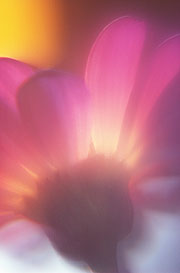
As its number indicates, ISO 5 was the fifth standard to be developed by ISO and is one of the oldest still actively updated and maintained. All ISO standards are periodically reviewed no later than three years after publication, and then every five years. Voting amongst ISO members decides whether an International Standard will be confirmed, revised or withdrawn. This ensures that all active ISO standards are on par with technology and market needs.
ISO 5 is a well known multi-part standard referenced in technical specifications for photography, graphic arts, paint, paper, image permanence and radiography among others. It consists of four parts:
- Part 1: Geometry and functional notation
- Part 2: Geometric conditions for transmittance density
- Part 3: Spectral conditions
- Part 4: Geometric conditions for reflection density.
“To meet the industry’s latest trends, this revision enables the use of modern spectrally based instruments, while preserving the validity of traditional filter based instruments for measuring density. At the same time, it ensures compatibility of results using both types of instruments,” says David McDowell, Convenor of the working group which prepared this revision (ISO/TC 42 JWG 21).
For the first time, all four parts were revised in concert to achieve a new level of consistency in terminology and requirements.
Moreover, the review was carried out by many of the same experts working on two other key photography/graphic technology standards:
- ISO 3664:2009, Graphic technology and photography – Viewing conditions
- ISO 13655, Graphic technology – Spectral measurement and colorimetric computation for graphic arts images (latest update soon to be published).
ISO 5, ISO 3664 and ISO 13655 form the basis for viewing, metrology, colour management and process control within the graphic technology and photographic industries.
“The joint effort to tackle the three standards in parallel has ensured a degree of compatibility among the documents that had never existed before,” says Mr. McDowell.
“Our greatest achievement is perhaps the unique level of cooperation established among the different technical committees involved in this work (while ISO 5 and ISO 3664 are the responsibility of ISO/TC 42, Photography, ISO 13655 is under the care of ISO/TC 130, Graphic technology).
“Both technical committees are proud of this effort which symbolizes ISO’s spirit towards international harmonization at all levels, and marks a significant milestone in the work of both committees,” says Mr. Mc Dowell.
ISO 5:2009 is available from ISO national member institutes (see the complete list with contact details). It may also be obtained directly from the ISO Central Secretariat, through the ISO Store or by contacting the Marketing, Communication & Information department (see right-hand column) at the following prices:
- 86 Swiss francs for Part 1: Geometry and functional notation
- 80 Swiss francs for Part 2: Geometric conditions for transmittance density
- 142 Swiss francs for Part 3: Spectral conditions (which includes several digital data files)
- 86 Swiss francs for Part 4: Geometric conditions for reflection density.
